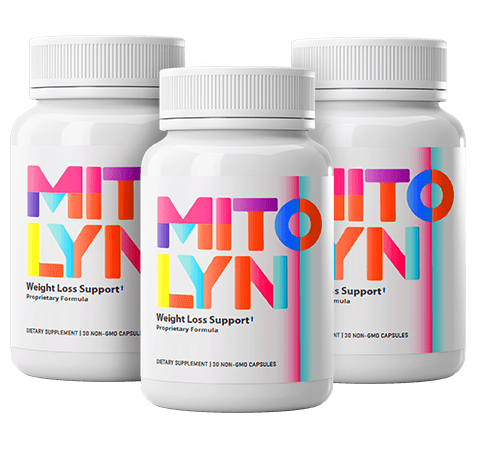How to Choose Supplements: A Comprehensive Guide for Optimal Health
Introduction
In today’s fast-paced world, maintaining optimal health can be challenging. While a balanced diet should always be the primary source of nutrients, supplements can help fill nutritional gaps, support specific health goals, and enhance overall well-being. However, with countless options available—ranging from multivitamins and protein powders to herbal extracts and specialized formulations—choosing the right supplements can be overwhelming.
This guide will walk you through everything you need to know to make informed decisions about supplements. From identifying your needs to evaluating product quality and avoiding common pitfalls, we’ll cover all the essential steps to ensure you select supplements that are safe, effective, and tailored to your health goals.
1. Assess Your Nutritional Needs
Before purchasing any supplement, it’s crucial to determine whether you actually need it. Blindly taking supplements without understanding your body’s requirements can lead to unnecessary expenses or even health risks.

Steps to Identify Your Needs:

- Consult a Healthcare Professional: A doctor or nutritionist can conduct blood tests to check for deficiencies (e.g., Vitamin D, B12, Iron, Magnesium).
- Evaluate Your Diet: Track your food intake using apps like MyFitnessPal to identify potential nutrient gaps.
- Consider Lifestyle Factors:
- Athletes/Fitness Enthusiasts: May benefit from protein powders, creatine, or branched-chain amino acids (BCAAs).
- Vegans/Vegetarians: Might need Vitamin B12, Iron, or Omega-3s (from algae oil).
- Aging Adults: Could require Calcium, Vitamin D, or joint-support supplements like glucosamine.
- Stress & Poor Sleep: Adaptogens (Ashwagandha, Rhodiola) or Magnesium Glycinate may help.
Common Signs of Deficiencies:
- Fatigue → Iron or B12 deficiency
- Weak bones → Calcium or Vitamin D deficiency
- Muscle cramps → Magnesium or Potassium deficiency
- Poor immunity → Vitamin C or Zinc deficiency
2. Understand Supplement Types & Their Benefits
Supplements come in various forms, each serving different purposes. Knowing which type aligns with your needs is essential.
Major Categories of Supplements:

- Vitamins & Minerals
- Multivitamins: Broad-spectrum support for general health.
- Single Vitamins (e.g., Vitamin D, B12): Target specific deficiencies.
- Minerals (e.g., Iron, Magnesium, Zinc): Crucial for metabolic functions.
- Protein & Amino Acids
- Whey Protein: Fast-absorbing, ideal for muscle recovery.
- Plant-Based Protein (Pea, Hemp, Rice): Suitable for vegans.
- BCAAs (Branched-Chain Amino Acids): Support muscle growth and reduce fatigue.
- Herbal & Botanical Supplements
- Turmeric/Curcumin: Anti-inflammatory benefits.
- Ashwagandha: Reduces stress and improves sleep.
- Ginseng: Boosts energy and cognitive function.
- Probiotics: Improve gut health.
- Omega-3 Fatty Acids: Support heart and brain health.
- Collagen: Promotes skin, hair, and joint health.
3. Check for Quality & Purity
Not all supplements are created equal. Some may contain harmful additives, insufficient active ingredients, or even contaminants.
How to Verify Supplement Quality:
✅ Third-Party Testing: Look for certifications from:
- USP (U.S. Pharmacopeia)
- NSF International
- Informed-Choice
- ConsumerLab
These ensure the product meets safety and potency standards.
✅ Read the Label Carefully:
- Active Ingredients: Should be clearly listed with exact amounts.
- Fillers & Additives: Avoid unnecessary ingredients like titanium dioxide, artificial colors, or excessive binders.
- Allergens: Check for gluten, soy, dairy, or nuts if you have sensitivities.
✅ Research the Brand’s Reputation:
- Choose companies with GMP (Good Manufacturing Practices) certification.
- Read reviews and check for any FDA warnings or recalls.
4. Choose the Right Form for Better Absorption
The form of a supplement affects how well your body absorbs it.
Common Supplement Forms & Their Pros/Cons:
| Form | Pros | Cons |
|---|---|---|
| Tablets | Long shelf life, portable | May contain fillers, slower absorption |
| Capsules | Faster absorption, fewer additives | Some people dislike swallowing them |
| Powders | Customizable dosage, fast absorption | Requires mixing, less convenient |
| Liquids | Quick absorption, easy to digest | Often contains preservatives/sweeteners |
| Gummies | Tasty, easy to take | High in sugar, lower potency |
Bioavailability Matters!
Some nutrients are better absorbed in specific forms:
- Magnesium Citrate/Glycinate → Better absorbed than Magnesium Oxide.
- Iron Bisglycinate → Gentler on the stomach than Ferrous Sulfate.
- Vitamin D3 → More effective than D2.
5. Avoid Overdosing & Potential Side Effects
More isn’t always better—excessive intake of certain supplements can be harmful.
Potential Risks of Over-Supplementation:
- Fat-Soluble Vitamins (A, D, E, K): Can accumulate in the body and cause toxicity.
- Iron Overload: Leads to nausea, liver damage, and other complications.
- Calcium Excess: May contribute to kidney stones or heart issues.
Safe Usage Tips:
✔ Stick to the Recommended Dietary Allowance (RDA) unless prescribed otherwise.
✔ Avoid megadosing unless supervised by a doctor.
✔ Monitor for side effects (digestive issues, headaches, allergic reactions).
6. Combine Supplements Wisely
Some supplements work synergistically, while others can interfere with absorption.
Beneficial Combinations:
- Vitamin D + K2 → Improves calcium absorption & bone health.
- Iron + Vitamin C → Enhances iron absorption.
- Magnesium + B6 → Supports nerve function and relaxation.
Avoid These Combinations:
- Calcium & Iron → Compete for absorption (take them 2-3 hours apart).
- Zinc & Copper → High zinc intake can deplete copper levels.
7. Be Wary of Marketing Gimmicks
The supplement industry is full of exaggerated claims.
Red Flags to Watch For:
❌ “Miracle cure” for diseases (supplements are not FDA-approved drugs).
❌ “100% natural” doesn’t always mean safe (e.g., some herbs interact with medications).
❌ Proprietary blends that hide ingredient amounts.
Trustworthy Sources:
- Examine.com (scientific research on supplements)
- PubMed (for clinical studies)
- Registered dietitians & doctors
8. Monitor & Adjust Based on Results
After starting a supplement, track how your body responds:
- Positive Effects: Increased energy, better digestion, improved sleep.
- Negative Reactions: Digestive discomfort, headaches, rashes.
If you experience adverse effects, stop usage and consult a healthcare provider.
Conclusion: Making Smart Supplement Choices
Supplements can be powerful tools for enhancing health—if chosen wisely. By following these steps—assessing your needs, verifying quality, selecting the right form, and avoiding overdosing—you can make informed decisions that support your well-being without unnecessary risks.
Final Checklist Before Buying Supplements:
🔹 Do I really need this supplement? (Blood test/diet analysis)
🔹 Is the brand reputable & third-party tested?
🔹 Does the form ensure optimal absorption?
🔹 Am I staying within safe dosage limits?
🔹 Have I consulted a healthcare professional?


1 thought on “How to Choose Supplements: A Comprehensive Guide for Optimal Health”